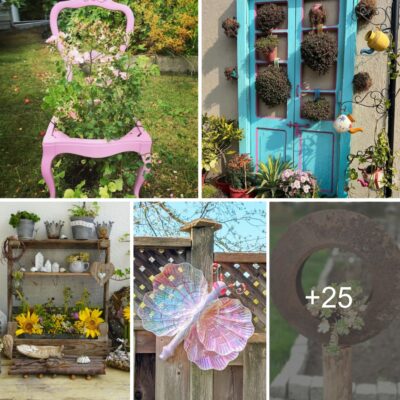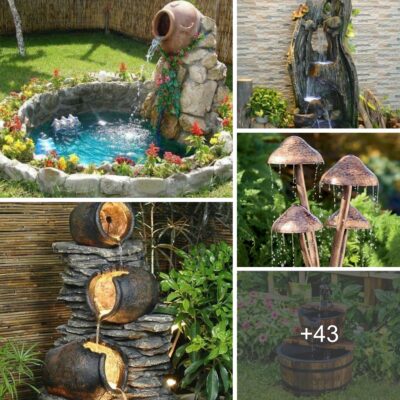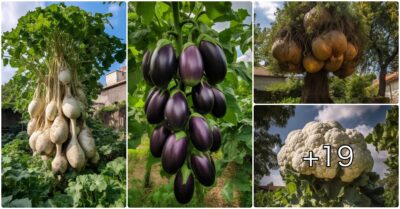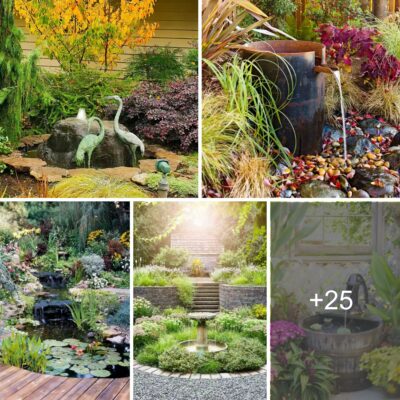Gardening is fun and rewarding. What could be nicer than eating food you have grown yourself or eating an evening meal on the patio surrounded by the fragrance of scented plants you have grown? Never gardened before? No problem. Make your grow-you-own dreams a reality with these 12 easy-to-follow tips.
Get to know your garden
Before you start, it’s a good idea to get to know your garden. Check the aspect – is it south-facing or north-facing? Knowing where the sun hits the ground will help you decide what to grow where. It’s also worth knowing what soil type you have. Take a look at what’s growing – camellias, magnolias and pieris will tell you the soil is acidic, while absence of these suggests a more alkaline soil. Doing a soil test will further help you know your soil, and therefore what plants you can grow.

Plan your garden
Sitting down and planning your garden is a great starting point. This way you can work out what to grow where, rather than getting carried away at the garden centre and ending up with a jumble of plants that don’t look good together and might not suit your growing conditions. Planning will also enable you to use colour and structure wisely, which will help you create a garden that looks great throughout the year.

Follow the sun and stay close to water
Misjudging sunlight is a common pitfall when you’re first learning to garden. Pay attention to how sunlight plays through your yard before choosing a spot for your garden. Most edible plants, including many vegetables, herbs, and fruits, need at least 6 hours of sun in order to thrive.
One of the best gardening tips you’ll ever get is to plan your new garden near a water source. Make sure you can run a hose to your garden site, so you don’t have to lug water to it each time your plants get thirsty. The best way to tell if plants need watering is to push a finger an inch down into the soil (that’s about one knuckle deep). If it’s dry, it’s time to water.

Good soil is the key to a successful garden
Plants depend on the soil for nutrients, stability, and drainage. To grow your best garden, start with well-drained, sandy loam and add as much organic matter as possible.

Choose the right plants
It’s important to select plants that match your growing conditions. This means putting sun-loving plants into a sunny spot, choosing heat-tolerant plants in warm climates, and giving ground-gobbling vines like pumpkins and melons ample elbow room (or a trellis to climb). Do your homework and pick varieties that will grow well where you live and in the space you have. And to get a step up on success when growing veggies and herbs, start with vigorous young plants instead of trying to grow from seed.

Learn how to plant
Planting your plants properly will ensure they grow well and live for a long time. Make sure you take time to weed and prepare the soil before planting, and add mulch or fertiliser where necessary. If you’re unsure how to plant something, look online for instructions rather than just hoping for the best. Trees planted too deeply will never thrive, and root-balls that sit proud of the soil surface will dry out quickly, leading to the eventual death of the plant.

Learn your frost dates.
Planting too early (or late) in the season can spell disaster for your garden. You need to know the last average spring frost date for your area so you don’t accidentally kill plants by putting them out prematurely. It’s also good to know your first average fall frost date so that you get your plants harvested or moved indoors before late-season cold damages them.

Feed and water plants regularly
Knowing when and how to water plants is the difference between them living and dying. As a general rule, water the root ball rather than the leaves, as it’s the roots that absorb the water. Soaking the rootball every week is better than watering a little bit every day. Feeding is also important – generally you should be looking at feeding every fortnight during growing season (that’s spring and summer), although you will need to feed more if growing in containers.

Keep an eye on pests
Most garden pests don’t do much harm to plants and can be left alone – there are plenty of natural predators that will keep them in check. However, sometimes pest populations can become an infestation, and you need to act. Keeping an eye out for increasing numbers of pests like aphids, slugs and snails, will help keep your plants safe, and save you a lot of heartache.

Be kind to wildlife
Many of those new to gardening see wildlife as the enemy – insects and their larvae defoliate plants, birds eat our fruit and mice nibble our pea and bean seeds. But wildlife can be useful in the garden, too. Birds eat a varity of garden pests, including slugs and snails, aphids and caterpillars. Bees pollinate our food crops. A garden wouldn’t be half as enjoyable without its wildlife – from frogs and toads, to hedgehogs, bees, butterflies and birds. Creating habitats for them and learning to share your garden with them, is the key to enjoying your space.

Don’t be afraid to prune
Pruning plants can seem like a daunting job, but if you learn how to do the job properly, you’ll be rewarded with plants that look good, grow well, and they’re likely to flower and fruit better, too. The key to successful pruning is to know when to prune, and follow guidance on how to make the cuts and shape the plant.

Enjoy your garden
Don’t forget to enjoy your garden. Make sure you take time to sit back and enjoy the fruits of your labour. Create a seating area where you can sit and read or eat with friends and family. Plant borders you can enjoy from a window, and hang bird feeders so you can watch their antics.

Thank you for spending time to see this article of Ideassimple about Top 12 Gardening Tips for Beginners. Please give us a like, comment or share if you find the article good and meaningful. Have a good day!











